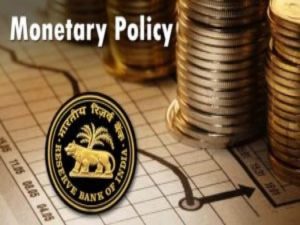The Reserve Bank of India (RBI) today announced its sixth bi-monthly monetary policy statement for 2019-20 in which the repo rate has been left unchanged. The Monetary Policy Committee (MPC), chaired by Governor Shaktikanta Das, said it has been decided to keep the policy repo rate unchanged at 5.15 percent as long as it is necessary to revive growth is not achieved while ensuring that inflation remains within the target.
Commenting on RBI policy announcements today from NBFCs’ point of view, Thomas John Muthoot, CMD, Muthoot Pappachan Group said “After the final bi-monthly MPC meeting for FY20, we welcome the decision to extend the one-time restructuring scheme implementation to December 31, 2020. MSMEs plays a crucial role in India’s economic growth and this move will definitely create an enabling environment for the entire sector. While RBI has kept the repo rate unchanged at 5.15 percent along with maintaining an ‘accommodative’ stance, this is being done to keep the inflation in check and revive growth. The CRR relief for automobile, housing and MSME loans is definitely a noteworthy point amidst the liquidity concerns in the market and this will help the lenders to lower their cost of deposits, ultimately transferring the benefit to the consumers.”
“The external benchmarking of the interest rates being extended to medium enterprises will improve the lending scenario in the market. We, at Muthoot Pappachan Group, look forward to the positive effect of all the government measures and are committed to taking the benefit to the deprived masses while working tirelessly towards contributing to the growth of local economies and real financial inclusion,” he adds.
While the central government decided to keep the repo rate unchanged with an ‘accommodative’ stance with adequate policy space availability, Rohit Poddar, Managing Director, Poddar Housing and Development Ltd. and Joint Secretary, NAREDCO Maharashtra says, “RBI maintaining a status quo with an ‘accommodative’ stance with adequate policy space availability is a positive news for the overall economy. The real estate sector was expecting some stimulus after a subdued Budget. The policy rates have remained unchanged for the second time after consecutive reductions of 135 bps in 2019. The cash reserve ratio leeway for new consumer loans is expected to facilitate the transmission of monetary policy. The RBI has extended the timeline of the commencement for commercial operations for project loans, which is a big relief for the commercial segment of the real estate sector. With the output gap moving to negative and liquidity remaining surplus in Dec’19 and Jan’20, impact the realization of fresh credit for developers and reduced home loan rates will complement the initiative to increase the borrowing ratio to GDP. These measures will further help in propelling the consumption-led economy.”
Terming the new announcements as a strong move for real estate, Shishir Baijal, Chairman & Managing Director, Knight Frank India says, “We are delighted with the MPC stance that has taken note of the concerns of the real estate sector making significant announcements today. With the lower provisioning requirement for retail loans extended to the housing segment, we hope that the new measure will translate into lower cost of loans for home buyers as well. The encouragement also comes to the development side of the business where the long-standing industry demand for asset classification has been addressed. This will augment the liquidity situation for developers too. With these two significant initiatives by the RBI, the real estate sector will hope to make a faster come back.”
Sujan Hajra, Chief Economist and Executive Director, Anand Rathi Shares & Stock Brokers believe that new announcements will be beneficial for the banks.
“As expected, the RBI kept all major policy rates unchanged in the Feb’20 Monetary Policy. RBI expects high inflation to continue in H1 FY21 but fall sharply below 4 percent thereafter. RBI also expects recovery of growth to continue. It has been categorically stated, “The MPC recognises that there is policy space available for future action”. We, however, are less sanguine on this as 12.2 percent in MSP hike during 2019 is likely to keep food inflation elevated despite continued softening of onion prices. Moreover, the base effects of fuel and manufactured product prices are also unfavourable. With retail inflation in 5-5.5 percent range in 2020, we do not expect any rate cut in the current year.”
“Despite our expectation of no rate cut in 2020, the categorical statement by MPC about the possibility of rate cut should boost sentiments. Minor fall in some lending rates, boost to bank NII. Linking credit to medium industries to an external benchmark, removal of CRR requirement on fresh retail housing and auto loans and credit to MSME are positive steps. These steps may marginally reduce the interest rates on such fresh loans. The removal CRR select loans (~15 percent of banks’ outstanding loan book) is also likely to give a temporary boost to banks’ net interest income,” adds Hajra.
Elets The Banking and Finance Post Magazine has carved out a niche for itself in the crowded market with exclusive & unique content. Get in-depth insights on trend-setting innovations & transformation in the BFSI sector. Best offers for Print + Digital issues! Subscribe here➔ www.eletsonline.com/subscription/




















